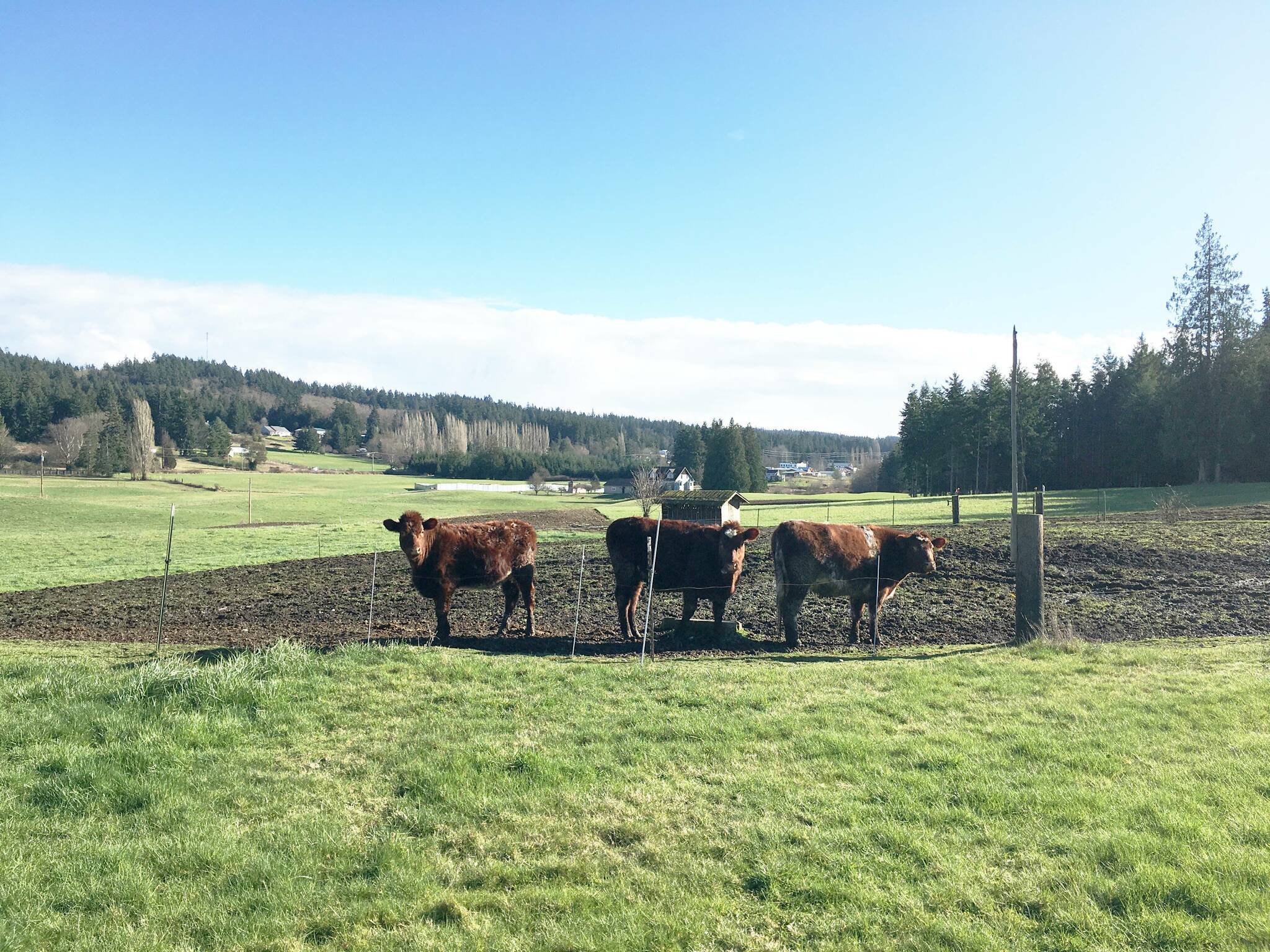A scenic piece of South Whidbey farmland on Lone Lake may be protected from development in perpetuity.
The Whidbey Camano Land Trust is seeking a conservation easement for the 37 acres bordering the southern shoreline of the lake. The property is owned by the Gabelein Family Trust and farmed by the Gabelein family.
Earlier this year, the Land Trust applied to Island County for a $790,000 grant from the Conservation Futures Program to purchase the easement, though the deal hasn’t been finalized.
Funds from the Conservation Futures Program come from a small property tax. The county program protects and preserves environmentally threatened areas, culturally significant sites and farmland. The fund can also be used for maintenance of property.
The farm has a long and important history on South Whidbey. The lakeside acreage is owned by third-generation farmers and has been farmed since 1887, two years before Washington attained statehood. The land is currently used to grow high-quality hay, according to the Land Trust’s application.
One of the benefits of the proposal is protecting scenic views. The land will be exclusively for agricultural use and no public access will be created.
The land also provides valuable habitat for an array of wildlife, including pileated woodpeckers, western painted turtles, various raptors, beaver, otters and coyotes, the application states.
County commissioners were unusually divided about the allocation of the funding and the approval of the grant agreement at the Oct. 26 meeting, with Commissioner Janet St. Clair voicing opposition. She cited concerns about the cost of the project.
Commissioners Jill Johnson and Melanie Bacon, however, voted in favor of the proposal.
“I do support this because the intensification of development around that shoreline definitely would change the character of the area and also reduce our access to agricultural lands,” Johnson said.
Bacon agreed.
“We have uncounted picture-postcard places on Whidbey and Camano Island,” she said. “This is one of them. And this is going to allow it to continue to be that while still providing agricultural benefit.”
One crop, however, won’t be farmed on the land. Growing marijuana will be restricted because site regulations requiring fencing of the crops would disrupt views.
Ryan Elting, conservation director for the Land Trust, said that although the county commissioners have approved the funding through the conservation program, the Land Trust hasn’t received a completed appraisal yet or made an offer for the purchase of the conservation easement.
“If we come to an agreement, we would aim to close on the purchase of the easement in the first half of 2022,” Elting said.
The Gabelein family first approached the Land Trust in 2014 about the possibility of preserving the property.



